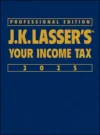What You Need to Know About Social Security in 2011
Whether you’re paying into the Social Security system or receiving benefits from it, the important news is that there are no changes for 2011. Some amounts can be adjusted annually for inflation, but because inflation has been so low, there will be no upward adjustments. Benefits will be the same, contributions to Social Security and Medicare will be the same, and taxation of benefits will be the same.
Benefits
About 58 million people receive Social Security retirement, disability, or supplemental income benefits. For purposes of Social Security, the same benefits paid in 2010 will continue to be paid in 2011. This means that the average monthly benefit for a retiree will be $1,170. The maximum benefit will be $2,346.
Note: There has been talk by some politicians of creating an additional payment of $250 for Social Security recipients, but this has yet to be enacted.
Wage Base
The maximum amount of earnings from a job that are taken into account for purposes of figuring the Social Security portion of FICA taxes remains at $106,800. This means the top tax payment is $6,621.60. There is no wage cap on the Medicare portion of FICA taxes.
The same earnings limit-$106,800-applies for the Social Security portion of self-employment tax (a tax that is equal to the employee and employer share of FICA taxes). The maximum tax payment is $13,243.20. Again, there is no earnings cap on the Medicare portion of self-employment tax.
The tax rates for FICA and self-employment taxes remain unchanged. The Social Security portion of FICA is 6.2% on the employee and employer; the Social Security portion of the self-employment tax is 12.4%. The Medicare portion of FICA is 1.45% on the employee and employer; the Medicare portion of the self-employment tax is 2.9%. One half of the self-employment tax is a deduction from gross income for self-employed individuals.
Earnings While Collecting Benefits
Those who have attained full retirement age, currently 66 for those born between 1943 and 1954, can earn any amount of income from a job or self-employment without any reduction in monthly benefits. Those who are younger than the full retirement age and have earnings above a set amount will see a reduction in their benefits.
- Reaching full retirement age in 2011. The monthly earnings limit applicable to the months prior to attaining the full retirement age is $3,140. If earnings from a job or self-employment exceed this limit, then benefits are reduced by $1 for each $3 in earnings above the limit.
- Under full retirement age in 2011. The monthly earnings limit is $1,180 ($14,160 per year). If earnings exceed this limit, then benefits are reduced by $1 for each $2 of earnings above the limit.
Note: Investment income in any amount has no effect on the amount of Social Security benefits received.
Taxation of Social Security Benefits
How much income tax, if any, you pay on Social Security benefits depends on your income, tax-exempt interest, and the amount of your benefits. Benefits may be entirely tax free or you may have to include 50% or 85% of your benefits in gross income, as follows:
- 50% includible. Combined income (adjusted gross income, plus tax-exempt interest, plus one-half of Social Security benefits) is between $25,000 and $34,000 if single ($32,000 and $44,000 if married filing jointly).
- 85% includible. Combined income over $34,000 if single ($44,000 if married filing jointly).
This tax rule does not change from year to year.
Medicare Part B Premiums
These have yet to be announced for 2011. However, because of the lack of an increase in Social Security benefits, it is expected that about 70% of recipients will pay the same monthly premium for Medicare Part B as they did in 2010.
Individual retirement account (IRA)
A retirement account to which up to $4,000 (or $5,000 if you are 50 or over) may be contributed for 2007, but deductions for the contribution are restricted if you are covered by a company retirement plan. Earnings accumulate tax free.



